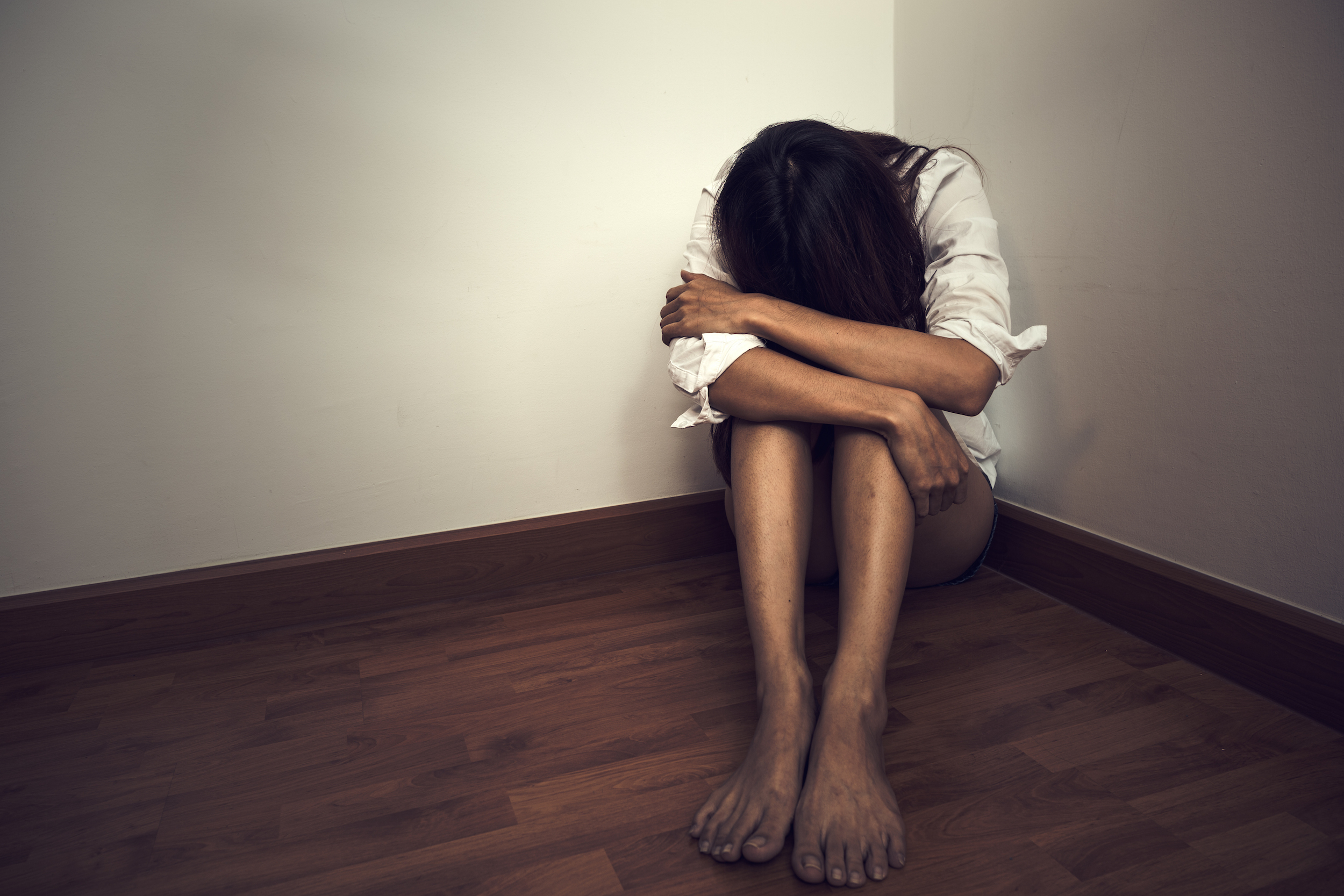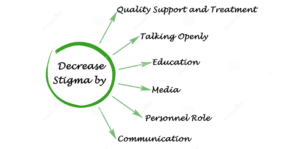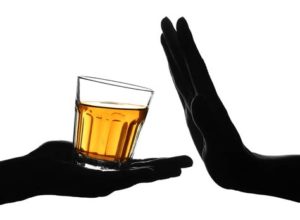Recently we posted an article, Second Life, by our friend Charlie Harrow. Charlie, a writer, busy on a number of projects. knows his stuff. In between his writing projects he had started developing reflective pieces on his experience with alcohol, alcoholism, recovery and more. This is the second in what will be a series, this time – Guilt!
Thanks Charlie!
It’s quite possible that tonight I’ll regret something I do, say or think sometime in the next sixteen hours.
If this proposition seems an oddly negative way to start the day, I’ve come to the conclusion that it may be better to begin the day with it in mind, even if I rarely remember to. At least that way I have the chance to pre-empt the causes of regrets rather than wishing, when it’s too late, that I could change the thought, word or deed which caused them in the first place.
Regrets come after the event, they are about the past, the too-late. A movie line like, “I regret to say I’m going to have to kill you”, implying regret in the present, is not regret because it’s insincere. And of course regrets about past events are not always real either; for example, “I’m really sorry I slept with your wife” – when the speaker is not sorry. An insincere regret is not a regret, just as nothing insincere is what it claims to be.
It seems, however, that Guilt is a far more slippery concept to pin down and define than regret. So the field is relatively open to try to do so. Firstly, contrary to general received opinion, I propose that guilt unlike regret concerns the present not the past.
Confusingly, the word Guilt itself has no known origin. It seems to have emerged from some Dark Ages English mist (whereas Regret comes from the French regreter – to bewail). But whenever it emerged Guilt has since been hijacked, firstly by religious, state and legal institutions, then leached into everyday domestic matters outside the law and religion, and finally, in sweeping statements by some of the great authors and thinkers, we are told that “we are all guilty” (Voltaire, Solzhenitsyn…). In the words of the philosopher Hannah Arendt, however, “Where everybody is guilty, nobody is”. Guilt is rendered meaningless if it’s universal and it disappears back into the mist from where it came.
Confusingly too, definitions of guilt are vague or sound exactly the same as the broad definition of regret; feeling responsible or remorseful for some offence, crime or wrong etc. whether real or imagined. In other words, all the after-the-event stuff, like going to prison (the law) or to Hell (religion) for some previous offence.
But guilt and regret are not the same thing. They co-exist.
Despite the countless manifestations and iterations of Guilt in religious, legal, societal and domestic affairs, I suggest that these are all deceptive. In them, Guilt has been hijacked by outside forces and, like any hijack, that can only be for a purpose. It seems uncontroversial to say that the purpose of this hijack has been to control a religious flock, a society, a group or an individual. Over time, Guilt has been robbed of its true meaning and has come to be used as an external instrument of control.
Yet what seems to me certainly true from my own experience is that nobody can wield guilt like an instrument, because nobody can make you guilty. It is an illusion, a magic trick to instil fear and to control. People can easily make you regret, however; by inflicting all kinds of punishment. Regret, remorse, penitence, contrition and all the rest are instruments. Guilt has come to be misused in the same way, as an external instrument. But it is not. I suggest that Guilt is a subjective, internal process and solely that.
(An objection to the claim that nobody can make you guilty is that people can, and do, make you feel guilty. But the objection doesn’t stand up. People can make you feel more or less anything if they have sufficient power over you, whether through force, flattery or other manipulation).
So what is guilt if it’s an internal process? What does it exist to do?
In the morass of its wide and misleading usage, what has been lost about guilt is its personal, subjective nature and that it occurs in the present not the past. Guilt is something I feel when I’m in the process of doing, saying or thinking something that I know I shouldn’t do, say, or think. In other words, I know Something is Wrong when I feel guilty and I know that that Something is me. With a reasonable level of awareness, I know that something is wrong with me when I’m on the point of doing (saying or thinking) something that I shouldn’t, and then when I’m actually doing it. It can be quite a powerful feeling with an almost physical effect, in the gut, perhaps, or in the throat or head.
When guilt arises in me it is like an alarm bell telling me something is wrong with me. It is warning me that something in what I’m doing (saying or thinking) is offending my personal values. This feeling of guilt is revealing to me that something I’m about to do, say or think contradicts who I really am. Guilt indicates that I am departing from my true self. There is a war going on inside me between my true self and my ego-led needs in the present. That war is the indication that Something is Wrong and Guilt is the alarm that rings out from my true self. It is nothing to do with anyone else. It is not external. Nobody else can make me guilty.
While regret is like shutting the door after the horse has bolted, guilt is the warning sign from the conscience or the true self to shut the door before the horse bolts.
In the program of Alcoholics Anonymous and other anonymous programs, there exists the phrase, “Restless, irritable and discontented”. It describes the common malaise of the addict. Addicts in recovery know very well from their pasts what it’s like to go against their inner convictions, their conscience, their beliefs, their values, who they really are. That is their war between their true selves and their addictive, ego-led needs in the present. And this internal war causes them to be restless, irritable and discontented. The only way they know how to stop their inner voices is to drink until these voices fade. When such an alcoholic picks up the first drink, he knows he shouldn’t be doing it, because he knows that one drink will lead to “institutions, hospitals and death”, two of which it may have already led him to. “Many of us”, it says on Page 62 of the AA Big Book, “had moral and philosophical convictions galore, but we could not live up to them even though we would have liked to”.
The feeling of guilt in this alcoholic (often accompanied by fear, bravado and a general fuck-you attitude which he uses to crush the guilt before the drink can do the job for him) is nevertheless strong, even when the powerful physical, mental and emotional craving for a drink is present. So the first thing an alcoholic needs to do in order to drink himself to death in relative peace and quiet is to kill his guilt, this inner voice, his conscience, his connection to spirit… whatever you like to call the feeling that arises when you know you are about to commit a wrong against who you really are. And it’s for this reason that addiction is called a spiritual disease as well as a physical, mental and emotional one.
Guilt, the internal warning sign of straying from my true self, is the enemy of the active alcoholic or addict that needs killing if I want to drink, because it tells me who I really am and then it contrasts that with what I’m actually doing.
Fortunately guilt is hard, if not impossible, to completely eliminate. It comes from inside us and dies only with us. Those moral and philosophical convictions, whether we’re addicts or not, are all external forces exerted by custom, religion, the state, society, laws, conventions and the intellectual rationale that backs them. And as external forces they are easy to dispense with because they are not a part of us. An addict can easily ridicule or denigrate them into nothing. A non-addict can override them with ease too, through rationalising what his ego wants him to do. Because moral and philosophical convictions are form not substance.
Most of us live in a world where there are fewer external “should” and “shouldn’ts” than in the past. This is surely, in general, a good thing. Power is usually misused when one person can tell another what they should and shouldn’t do, let alone when an institution can. Why should other people tell us what to do? We associate ‘should’ and ‘shouldn’t’ with external forces being brought to bear on us, usually by people who have a domineering agenda of their own. Yet somehow we fail to notice in the reasonable ditching of these external constraints on us that we also tell ourselves what we should and shouldn’t do. And that often this inner voice which tells us is in conflict with another voice in us that demands our ego-led needs are met now.
It’s unfortunately the case that humankind is highly susceptible, even wants to be told what to do, say or think (and then, of course, complain about it while doing nothing to stop it). But the reason we abnegate responsibility for our actions, words and thoughts is because we do not trust our inner voice, our conscience, our true self, to which guilt alerts us. We do not have faith in ourselves.
It seems highly strange to me that we have faith in so many things, almost anything, in fact, except ourselves. There are people today who believe God created the world 5000 years ago and put dinosaur footprints there at the same time, in order to explain the awkward evolutionary hiatus between us and dinosaurs. There are people who believe that god is a white-bearded old man in the sky. There are people who still believe the Earth is flat. Easy to laugh at, certainly Yet all of us have faith in many things; whether it’s the stock market, a football club, a sunny weekend, or that Dead Cert is going to win the 3.30 at Newmarket. We have huge faith in science, despite the fact that on a regular basis science proves itself wrong, updating its own past mistakes. (And how grateful we can be for that). Almost anything, in the right circumstances, can attract our faith in it.
But the one thing we have little or no faith in is ourselves. Either we reject our inner voice, our true self, or we drown it out with substances, or with behaviours, ambition, greed, wealth, power…anything that serves our ego’s agenda. But however we shut it down, we are happier anyway to listen to the sugary, ego-led voice that demands our needs be met now, in the present, whether that’s good for us or not.
You may argue that our inner voice is itself formed by custom and tradition, the history of power of one person over another; that our inner voice is just copying those moral and philosophical convictions which have been formed intellectually over many centuries and then assumed.
But surely it’s far more likely that our moral and philosophical convictions come from our inner voices, not vice versa. Around 4,000 years ago someone wrote the Ten Commandments (God, we are told, who gave them to Moses on a mountain-top). This highly unlikely scenario seems more like an early attempt to form a religious organisation around a set of principles all of us broadly agree with anyway. And since we all broadly agree with them, the chances are that they came from us in the first place. But for the men of power who came to control that particular religion, it was a far better idea if this god had laid down the rules. That way, we can be in awe of him (and the men who claim to speak for him) rather than be in awe of the ‘god’ within us, our true self.
We are afraid of the experience of ourselves. We don’t really want to pay attention to something that comes from us, perhaps we think it can’t be worth listening to for that very reason. We would much rather hand all the responsibility over to someone or something else. Guilt then becomes an instrument used against us by an outside force.
To me it seems highly likely, however, that my inner voice is the same as your inner voice, that my true self is the same as your true self. And that this universality of spirit is what actually joins us, not a set of rules, laws, traditions and conventions which arise from it, but are then manipulated for the benefit of the men of power.
To avoid regret, it is better to listen to this true self when the alarm goes off.
Guilt is the antidote to regret.
Guilt is good.





